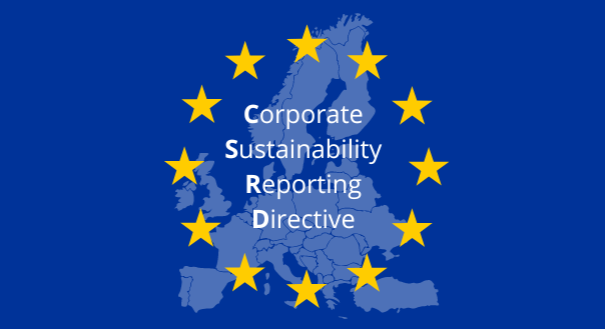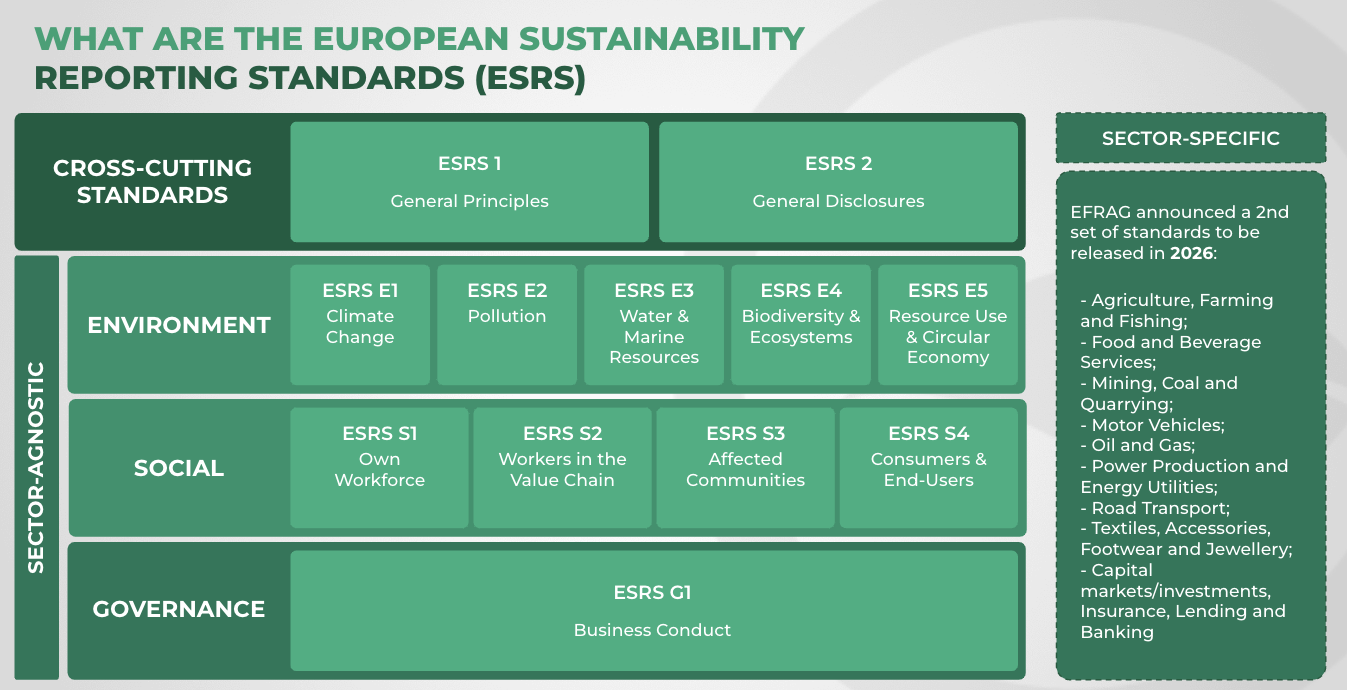CSRD: Corporate Sustainability Reporting Directive
The Corporate Sustainability Reporting Directive (CSRD) is a European Union regulation that expands and strengthens sustainability reporting requirements for companies operating in the EU. It replaces the older Non-Financial Reporting Directive (NFRD) and introduces standardized, detailed disclosure rules aligned with the European Sustainability Reporting Standards (ESRS).
Its goal is to improve transparency and comparability of environmental, social, and governance (ESG) information—particularly data on greenhouse gas (GHG) emissions, climate risks, and transition plans.




